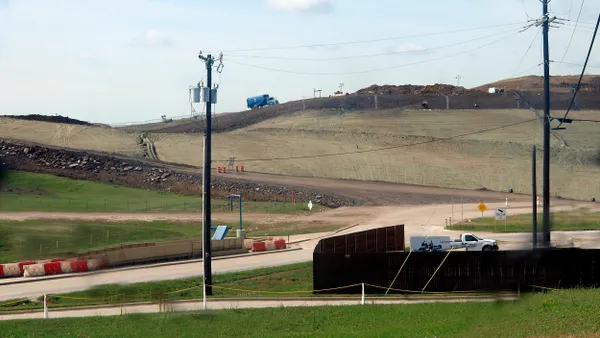Dive Brief:
- U.S. Sen. Robert Casey is calling on the Obama administration to increase funding to $150 million in fiscal year 2017 to clean up nuclear waste sites — 30% above the budget. Currently, a $350 million project in his state of Pennsylvania is addressing waste buried at the nuclear dump in Parks Township. The Army Corps plans to recoup cleanup expenses from the owner, to hire a new contractor, and to begin working to remove and ship the waste out of Parks in 2018.
- The Formerly Utilized Sites Remedial Action Program, dedicated to cleaning up nuclear sites, operated on a $130-$140 million budget for years, which has dropped below $110 million since fiscal year 2011, according to U.S. Army Corps. This has been a driver for Casey’s appeal to the federal government.
- The cleanup program administered by the U.S. Army Corps of Engineers covers 24 active sites in 10 states — Connecticut, Iowa, Indiana, Maryland, Massachusetts, Missouri, New Jersey, New York, Ohio, and Pennsylvania.
Dive Insight:
So far, the Parks cleanup has not been significantly hindered by financial constraints, according to the Pittsburgh District of the Army Corps. But there are concerns about how far existing funds will take the project due to the discovery of more complex nuclear materials than was projected, and Sen. Casey is not wavering as nuclear waste continues to be an issue around the country.
"Leaving these sites unaddressed or underfunded not only poses a health risk to communities near these sites, but also neglects the federal government's responsibility to address the lasting impacts of its past nuclear testing and research activities," Casey wrote in a Jan. 11 letter to the U.S. Office of Management and Budget.
"With several large FUSRAP sites entering the expensive remediation phase of the cleanup cycle…including Parks Township…the FUSRAP program will see record-high costs beginning in (fiscal year) 2017 and beyond," Casey wrote.
Nonprofit Savannah River Site Watch of Columbia, SC, questions whether the U.S. government will be able to provide much support.
"Given growing pressure of the federal budget, it's hard to see where the necessary clean-up funding will come from," said Tom Clements, director of the Savannah River Site Watch.









